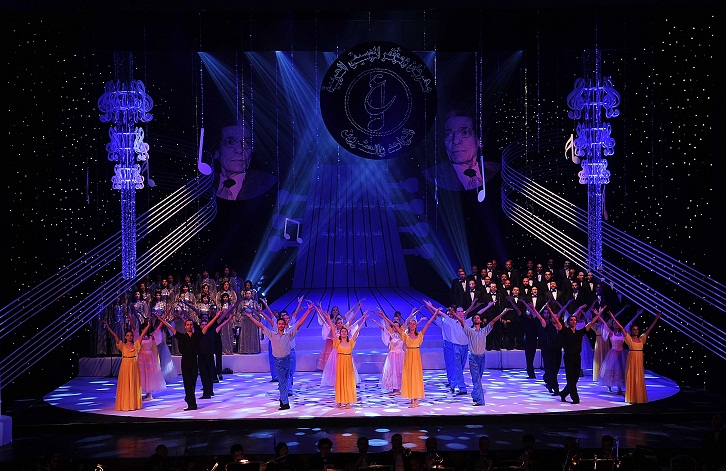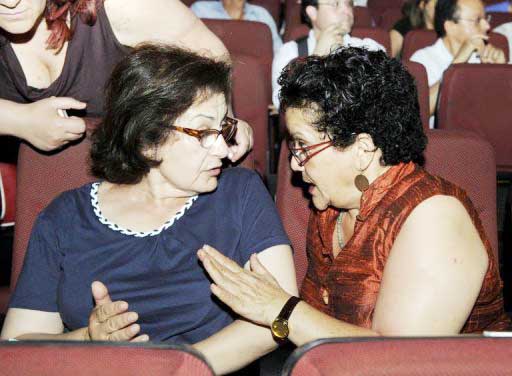On Thursday night, the US Embassy presented a concert featuring collaboration between Nubian Drums, one of the many musical heritage projects of Islamic Cairo mainstay Intissar Abdel-Fattah, and the Bombie Trio, a band from the US advertised as jazz but better described as a blues-rock cover band.
The embassy’s forays into cultural programming seldom produce events that would please a cold, discerning critic, but that is not their point. Their goal is rather to pursue a form of soft diplomacy, increasing awareness among Egyptians of US culture as a store of sympathy that might come in handy should relations ever get tense.
The beautifully restored, impeccably detailed Dome of Al-Ghouri in Islamic Cairo was packed with Egyptians and Americans, who clapped along cheerily to the loud music. The three members of the Bombie Trio nodded along excitedly as they added muscle to the traditional instruments of Nubian Drums, making a kind of music with surprising similarities to popular, shaabi music.
Efforts at blending two styles of music with little in common, like American blues-rock and Nubian traditionals, generally take the same form. Each number involves one ensemble playing their own music, while the other finds a way to accompany them. The Bombie Trio and Nubian Drums traded numbers, each discovering a way to play along with the other’s repertoire.
When the Bombie trio played a blues song, or their cover of Stevie Wonders’ Higher Ground, the small army of drummers tapped and bounced along comfortably, while the players of traditional Nubian instruments like the mizmar and the rebab struggled to find a place in the groove.
When the Nubian Drums played songs from their own repertoire, under Abdel-Fattah’s spirited direction, the Bombie trio’s drummer matched the beat while the bassist and guitarist simply added volume, allowing the music to completely fill the small stone space.
Towards the end of the set, the Bombie Trio launched into a cover of Bob Marley’s seminal “Trench Town Rock,” known for the lyrics “One good thing about music, when it hits you feel no pain.”
Indeed there was little pain in the music, which pleasantly fulfilled the purposes of bringing together two cultural traditions without a lot of fuss or adventure. The point was not the actual musical results, of course, but the coverage.
The Bombie Trio, if not a particularly innovative, are undeniably appropriate cultural ambassadors for the US. Most Americans listen to blues and reggae of the sort that the trio plays, and most anonymous bands playing at bars and clubs throughout the US will default to this kind of music. In this sense, they were the perfect choice to represent the US, even if they are totally unknown there.
Relations between the US and Egypt, on the political level, are formally strong and informally careful these days. Last week, American Senator John Kerry visited Egypt to meet with SCAF and the Muslim Brotherhood, Many ordinary Americans are worried about the prospect of a Brotherhood-led government, while Egyptian activists unhappy with SCAF’s continuing control of the country are skeptical of the extent to which the US seems to be supporting SCAF. It is a moment of diplomatic sensitivity, and relations, while not in danger, are at least cautious.
“How sweet it is to be loved by you,” sang the members of the Bombie Trio, as the Nubian drums banged out Marvin Gaye’s famous chugging groove. For a moment, such political concerns were secondary, and the mutual goodwill of Egypt and the US was on full display.

Conductor Intissar Abdel-Fattah leads the bands Nubian Band and Bombie trio during a concert. The bands blended their different musical styles into a stellar performance. (Photo by Emily Smith)

